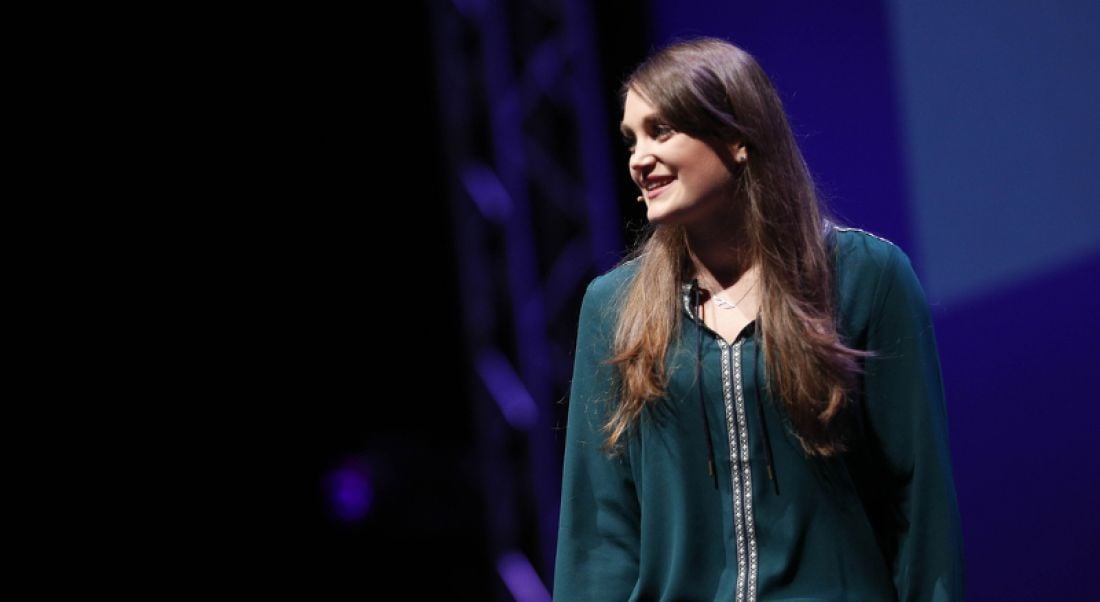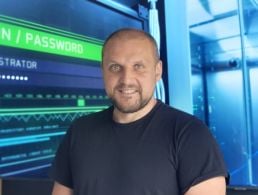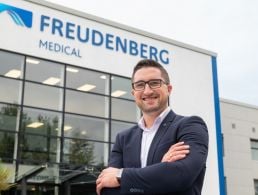This week saw the Irish release of the Ghostbusters franchise reboot, featuring for the first time an all-female team of scientists and paranormal investigators. And yet, for many, careers in science and research still seem somewhat nebulous – particularly for young women not often exposed to the idea that this is a valid and viable career option for them.
With that in mind, and to coincide with the Ghostbusters release, we at Siliconrepublic.com reached out to female researchers working in Ireland to showcase their work, and their career growth.
Here, Lisa Helen, an Irish Research Council (IRC) PhD scholar based at Tyndall National Institute, and Inspirefest 2016 speaker, tells us about her important work in medtech.
What is your role within Tyndall?
I am an IRC PhD scholar. I conduct my research in the Life Science Interface group at Tyndall, where I am developing a new medical device called the Smart Needle under the supervision of Dr Eric Moore and Dr Brian O’Donnell.
For my PhD, I am applying a sensor to the tip of a needle, which will identify the tissue type at the needle tip. This will inform the doctor or user where the needle is located in the body and, of particular focus in my work, will identify if the needle is touching a nerve or not.
This information will make it easier and safer for an anaesthetist to inject local anaesthetic in a particular target location.
If there is such a thing, can you describe a typical day in the job?
Every day is very different.
I am working on developing something completely new and innovative, therefore no two days are the same. I have to think of new solutions to different problems that come up every day.
Typically, I will start the day with computer work, involving things like writing reports on results obtained during experimental work or replying to emails. Then I head to the laboratory or fabrication facilities to do some work on making or characterising the Smart Needle.
Typical experiments involve electrochemical analysis of solutions or meat tissues, using the Smart Needle. I also present my work at conferences, both internationally and nationally, three to four times a year.
What types of project do you work on?
The Smart Needle project is solely mine to work on, and has been ongoing for the last four years.
What skills do you use on a daily basis?
Communication, problem solving, analytical thinking, troubleshooting, innovation and computer literacy are all skills that need to be used on a daily basis in my research.
What is the hardest part of your working day?
Sometimes the hardest part of my work is trying to figure out what is wrong with my device. If I am getting unexpected results, I need to figure out if something is wrong with the device, what the specific problem is, and then think of a way to fix it. Once I know the source of the problem, I have a starting point on how to solve it.
This can be tough if the cause of the problem isn’t obvious but, often, troubleshooting can be the most rewarding and innovative part of the job too.
Do you have any productivity tips that help you through the working day?
In order for me to be productive, I have to be organised. I plan out my experimental work each week and ensure I write up reports on each block of experimental work completed, including a discussion on the results and conclusion. I also record everything I do each day so I can keep a track of my progress and can refer back to particular events when I need to.
When you first started this job, what were you most surprised to learn was important in the role?
I was most surprised to learn that it is very important to think ahead and prepare for experiments well in advance of the start date. Often you need to get custom parts made, book equipment, get training, or access expertise from another source to run a particular experiment. This can take a lot of time. You need to multitask and plan and do things in parallel to avoid delays in the overall progress of the work.
How has this role changed as this sector has grown and evolved?
In recent years, there has been an increasingly heightened focus on researchers commercialising their research.
As a PhD student, previously, this may not have impacted on how research was conducted or communicated to the public. Now, more and more PhD students are taking modules on commercialisation, business planning and communicating research to the public or potential investors. This is essential for translational research to have a genuine impact on society.
What do you enjoy most about the job?
I most enjoy being innovative and coming up with crazy ideas that sometimes actually work!
It’s great to be in a job where every day is different, with new challenges that will only be solved by getting into the laboratory and trying new things. The possibility of seeing my device in hospitals in the future, and potentially helping many people in pain, is also a massive motivation for me.
Looking for jobs in tech or science? Check out our Featured Employers section for information on companies hiring right now.




